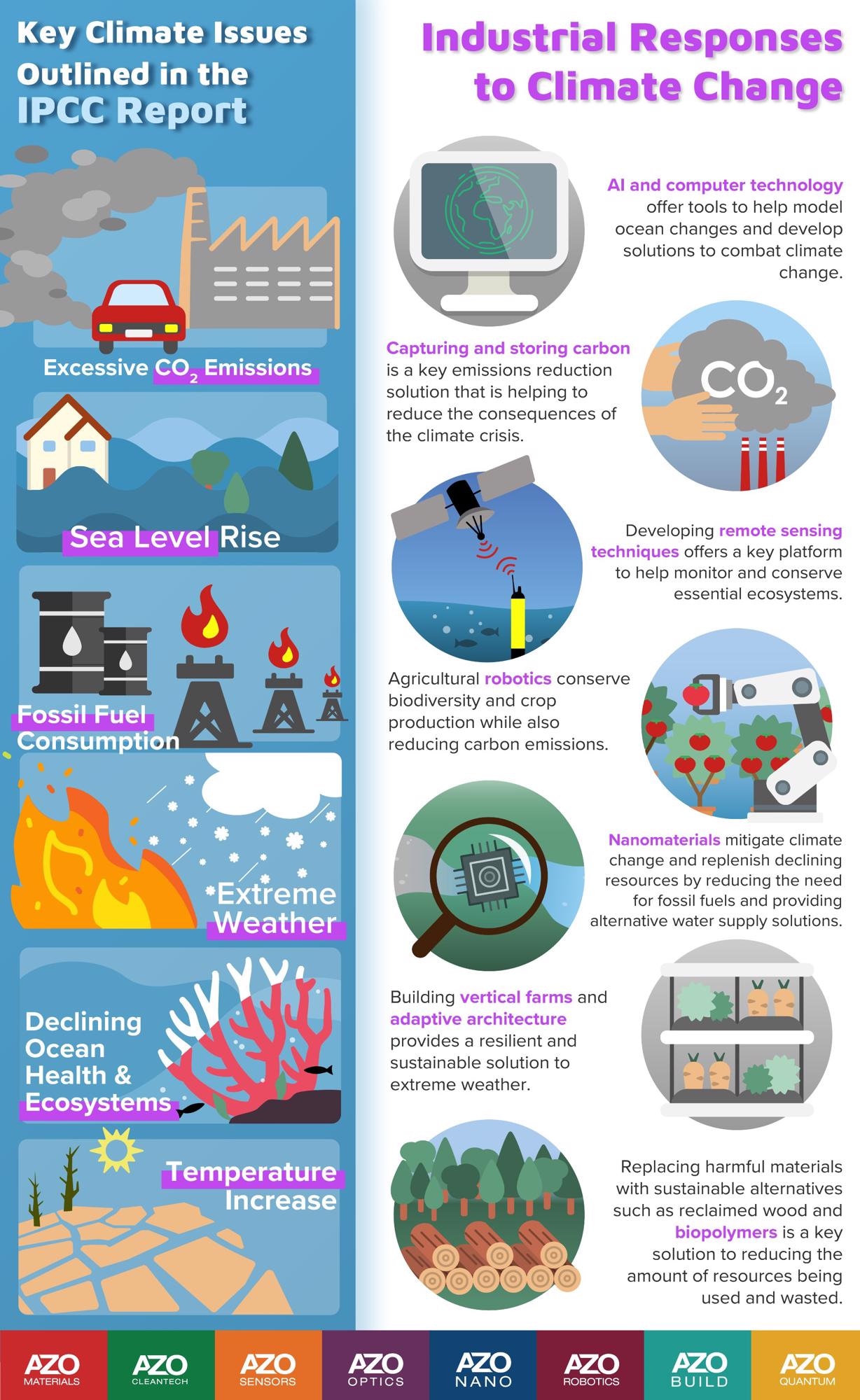
Quantum and space technologies are at the forefront of industry 4.0. However, their ability to revolutionize the way that climate change mitigation efforts are designed is only just being uncovered.
Global warming has undoubtedly affected almost every ecosystem and habitat on the planet. In 2018, the Intergovernmental Panel for Climate Change (IPCC) drew attention to this in the Summary for Policymakers, detailing the consequences already felt by this increase in temperature worldwide – as well as what would happen if global warming worsens. Throughout this document, the IPCC highlight the need to design adaptive climate change solutions: "Future climate-related risks would be reduced by upscaling and acceleration of far-reaching, multilevel and cross-sectoral climate mitigation and by both incremental and transformational adaption."
What is IPCC's Sixth Assessment Report?
Video Credit: Intergovernmental Panel on Climate Change (IPCC)/YouTube.com
August 2021 saw the release of an expansion of this report, The 2021 Physical Science Basis Summary for Policymakers, and the first in-depth review of climate change scientific evidence in over five years.
A decrease in food security, extreme weather resulting in severe agricultural droughts, and a predicted rise in global temperature of 0.5 ºC by 2040 are just a few of the likely futures for the planet. The primary influence behind these climate change consequences was also made clear.
Human influence has warmed the climate at a rate that is unprecedented in at least the last 2000 years.
The 2021 Physical Science Basis Summary for Policymakers, IPCC, 2021
Without implementing adaptive, practical solutions, the ecological damage caused by anthropogenic actions cannot be mitigated. Addressing the effects of climate change requires innovation; otherwise, the Earth's climate trajectory will continue to fall.
Advancements in quantum technologies are enabling researchers and policymakers to rethink current practices, design novel solutions, and potentially overcome the climate change crisis.
The IPCC Report Series
In this Industrial Response to Climate Change Editorial Series, AZoQuantum explores how different quantum and space technologies are applied to climate challenges outlined in the IPCC's reports.
Each article will outline the relationship of each topic to climate change issues before discussing associated research, industrial relevance, and limitations that may prevent its wide-scale use. An evaluation will also be included, looking at whether this particular topic has the potential to contribute to climate change mitigation impactfully.
By taking a sector-specific approach, AZoQuantum's Editorial Series offers a unique view of how quantum and space technologies are involved with sustainable innovation, showcasing the importance of research and development in mitigating the ongoing climate crisis.

Image Credit: Sara Lopez Segura
Current attempts to design climate change mitigation strategies cannot fully address the ecological, resource, and infrastructure consequences. Although innovation is required in the practical establishment of such mitigation efforts, their construction can also be reevaluated. Rethinking climate change solutions with quantum technologies enable novel insight to be discovered across a broad range of sectors.
Quantum computing, for example, has the potential to revolutionize current practices that are a staple in the agricultural industry via chemical simulation. By reducing the need for natural gas to produce fertilizers, a cost-effective approach to sustainable fertilizer could be obtained.
Space technologies have always been critical examples of industrial and research development. However, their use is often limited to everywhere except our planet. Here, we discuss how space habitation's closed-loop technologies could change how sustainability is currently approached, further relieving the pressure on vital resources.
The applicability of quantum and space advancements in climate change mitigation efforts must be acknowledged. Without this, impactful, multilevel adaption across all sectors cannot occur.
References and Further Reading
IPCC, (2018) Summary for Policymakers. In: Global Warming of 1.5°C. An IPCC Special Report on the impacts of global warming of 1.5°C above pre-industrial levels and related global greenhouse gas emission pathways, in the context of strengthening the global response to the threat of climate change, sustainable development, and efforts to eradicate poverty [Masson-Delmotte, V., P. Zhai, H.-O. Pörtner, D. Roberts, J. Skea, P.R. Shukla, A. Pirani, W. Moufouma-Okia, C. Péan, R. Pidcock, S. Connors, J.B.R. Matthews, Y. Chen, X. Zhou, M.I. Gomis, E. Lonnoy, T. Maycock, M. Tignor, and T. Waterfield (eds.)]. World Meteorological Organization, Geneva, Switzerland. In Press
IPCC, (2021) Summary for Policymakers. In: Climate Change 2021: The Physical Science Basis. Contribution of Working Group I to the Sixth Assessment Report of the Intergovernmental Panel on Climate Change [Masson-Delmotte, V., P. Zhai, A. Pirani, S. L. Connors, C. Péan, S. Berger, N. Caud, Y. Chen, L. Goldfarb, M. I. Gomis, M. Huang, K. Leitzell, E. Lonnoy, J.B.R. Matthews, T. K. Maycock, T. Waterfield, O. Yelekçi, R. Yu and B. Zhou (eds.)]. Cambridge University Press. In Press.